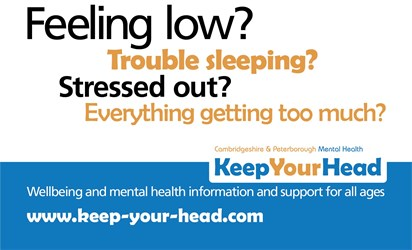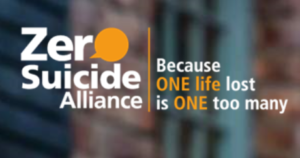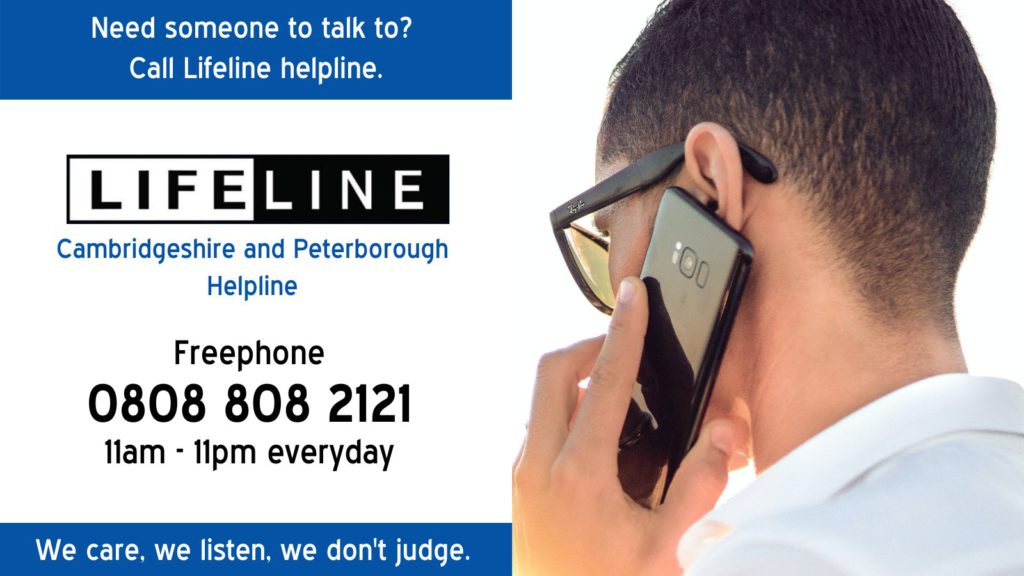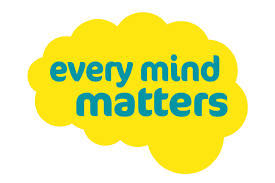One-in-four adults and one-in-ten children experience mental illness during their lifetime, and many more of us know and care for people who do.
Improved mental health and wellbeing is associated with a range of better outcomes for people of all ages and backgrounds.
The adult safeguarding duties under the Care Act 2014 applies, amongst others to adults who have a disability or long-term illness, including people with mental health problems.
It is a priority for the SAB to ensure that adults at risk of abuse and neglect are protected, and that practitioners are skilled and trained appropriately to recognise changes in symptoms and behaviours that may indicate a deterioration in their mental health and that a change in care management/planning is required; and are safeguarded in line with the principles of Making Safeguarding Personal.
Self-harm and Suicide
Self harm is when someone deliberately hurts themselves. It can include cutting, burning, hitting or bruising, poisoning, scratching, hair-pulling or overdosing.
Adults who self harm aren’t usually trying to commit suicide or looking for attention (although self harming can result in accidental death). Often, it is a way for the person to deal with overwhelming or distressing feelings and emotions. It’s a way of coping.
Some people use self harm as a way to cope with anxiety, stress and overwhelming emotions. It is often a sign that there is an underlying problem.
Self harm can be really hard to understand but it is a lot more common than some people think.
The best thing to do is for the person to get help to deal with the underlying issues. Getting the right help is often the key to overcoming or managing self harm.
Suicide Facts and Figures
- Each day around 16 people take their life in the UK and Ireland.
- In the UK, men are three times as likely to take their own lives than women.
- In the UK, the highest suicide rate was for men aged 45-49.
(Samaritans Suicide Statistics Report 2018)
If you are feeling suicidal, there are people you can talk to:
- speak to a friend, family member or someone you trust
- call the Samaritans 24-hour support service on 116 123
- go to your nearest accident and emergency (A&E) department and tell the staff how you are feeling
contact NHS 111 - make an urgent appointment to see your GP
If someone tells you that they are feeling suicidal:
- Stay Calm – It may be uncomfortable listening but try not to let your own emotional response prevent you from hearing what the person is saying and what their body language is telling you. Talking about self-harm and suicide does not increase the risks!
- Listen – Just being listened to can be a brilliant support and bring great relief to people, particularly if they have never spoken to anyone about their self-harming or suicidal thought before. The fact that they have chosen you to talk to means they feel comfortable speaking to you.
- Take Them Seriously – Do not ignore or dismiss the feelings or behaviour of someone nor see it as attention-seeking or being manipulative. Do not be judgemental
- Confidentiality – Do not keep concerns to yourself – helping someone is a wonderful opportunity but it can also be stressful. If you are a professional, share your concerns with your line manager or safeguarding lead they will help you to consider and manage the risk.
- Clarify whether or not there are immediate needs for medical attention or urgent help to keep the person safe and respond accordingly. For urgent medical attention call 999, for non urgent medical help call 111 or the persons own GP.
- Make sure you are available for the person for the following few days / weeks. If you are not available make sure they know where to seek support from.
Emergency Local Mental Health Support
Call 111 and press option 2 for the First Response Service – a 24-hour service for people in a mental health crisis. This service is for anyone, of any age, who is registered with a GP in Cambridgeshire or Peterborough. Specially-trained mental health staff will speak to you and discuss with you your mental health care needs – instead of you having to go to accident and emergency departments of local acute hospitals.
*People in Wisbech have not got the option 2 but can access the service via dialling 111. The call handler will then transfer them direct to the FRS (First Response Service) service.
You might be in crisis if:
- You are thinking of hurting yourself or suicide seems the only option
- Someone you know has made threats to hurt you or someone else.
- You are experiencing extreme distress that seems overwhelming.

Keep your head has been developed by the local NHS, voluntary sector and Cambridgeshire and Peterborough local authority organisations to provide a central hub of information on mental health for adults, children and professionals.

Free online suicide prevention training is provided by the Zero Suicide Alliance which only takes about 20 minutes to do. This will give you some tools to be able to help others as well as yourself.

Lifeline is a Peterborough and Cambridgeshire community service, ran by Lifecraft and provides a listening ear and signpost you to self-help and other services.

If you are interested in how to protect your own mental health, the NHS website ‘Every Mind Matters’ includes access to a free personal Mind Plan with tips to help you deal with stress and anxiety, and to improve your sleep.
